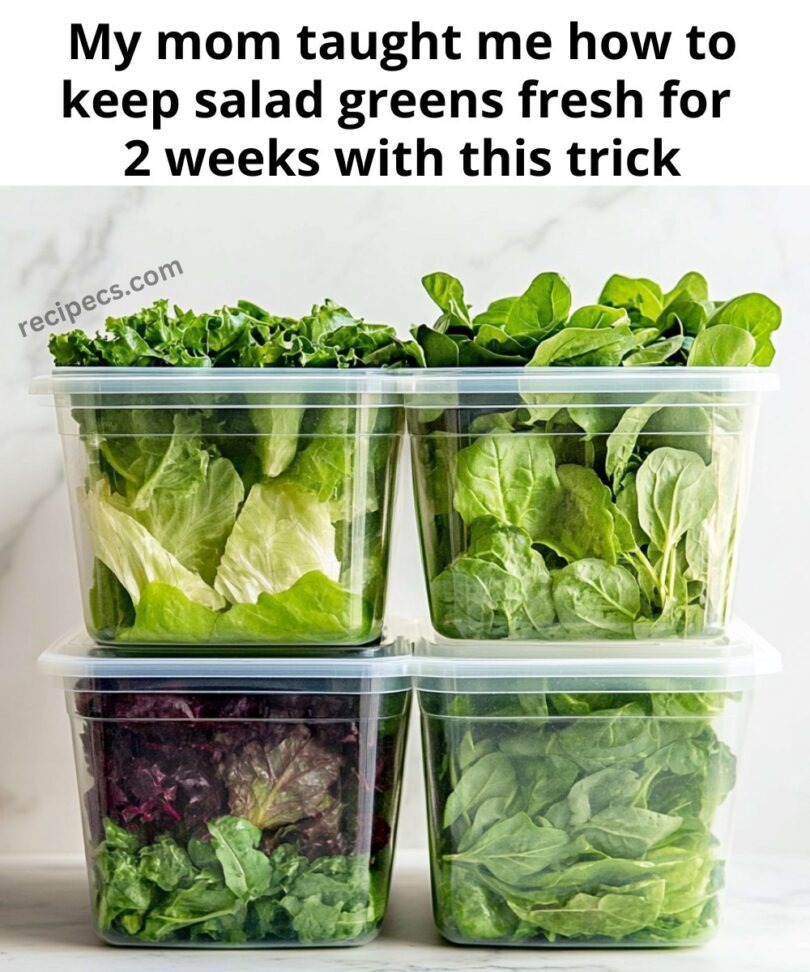ADVERTISEMENT
How to Extend the Shelf Life of Salad Greens: The Best Method for Freshness
Salad greens—whether it’s crisp romaine, peppery arugula, or tender spinach—are a staple in many kitchens. They’re perfect for quick salads, wraps, smoothies, or just as a healthy snack. But no matter how fresh they are when you buy them, salad greens have a frustrating tendency to wilt, brown, or go slimy within just a few days. If you’ve ever had to toss a half-full bag of wilting spinach or soggy lettuce, you know the struggle.
The good news? You don’t have to settle for wasted greens. With the right storage techniques, you can extend the shelf life of salad greens and keep them fresh for a lot longer. In this article, we’ll reveal the best method to store your greens so they stay crisp and vibrant, minimizing waste and maximizing your enjoyment.
Why Salad Greens Go Bad Quickly
Before diving into the best way to store your greens, it’s important to understand why they spoil so quickly. Salad greens are delicate, high-water-content vegetables. Their cells are very tender and easily damaged, which makes them more susceptible to oxidation and moisture buildup.
The main culprits behind wilting and spoilage are:
- Excess moisture: Too much water causes greens to break down, making them slimy and unappetizing.
- Lack of airflow: If greens are sealed in an airtight container without ventilation, the trapped moisture accelerates wilting and mold growth.
- Bruising or damage: Any physical damage to the leaves can cause them to rot faster. Even small tears or bruises are an entry point for bacteria and mold.
With that in mind, proper storage can help mitigate these issues and keep your greens fresher for longer.
The Best Way to Extend the Shelf Life of Salad Greens
Read more on next page
ADVERTISEMENT
